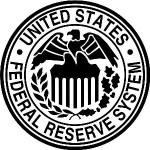 The Federal Reserve Board published its proposed rule on debit card interchange fees and routing. The rules go much further than many expected, and have a strong pro-merchant bias. Comments on the rule must be submitted by February 22, 2011.
The Federal Reserve Board published its proposed rule on debit card interchange fees and routing. The rules go much further than many expected, and have a strong pro-merchant bias. Comments on the rule must be submitted by February 22, 2011.
The proposed rule on debit card interchange was published by the Federal Reserve Board of Governors as required by the Durbin Amendment (passed as part of the Wall Street Reform and Consumer Protection Act earlier this year). The Durbin Amendment required the Federal Reserve to “establish standards to ensure that an interchange fee is reasonable and proportional to the issuers costs.”
To investigate interchange fees, the staff of the Federal Reserve Board distributed surveys to debit card issuers, payment card networks, and merchant acquirers. The surveys solicited information about the cost of debit card processing, current and historical interchange fees, other network fees, the incidence of and loss from fraud, fraud-prevention costs, etc.
Apparently, the results of the survey caused the Federal Reserve to conclude that the cost associated with interchange should be fixed by the Government. The Fed, in the proposed rules, recommends two ways to assess “reasonable and proportional” interchange fees:
- Alternative 1: Fix costs using a combination of issuer-specific standards, a cap, and a safe harbor.
- Alternative 2: Cap interchange fees.
The theory is that “setting a cap ensures that no issuer is able to receive an interchange fee at an unreasonably high level.”
If the rule issues in this form, the debit card industry is in for a major shake up. The only group that seems to benefit (at least in the short run) would be merchants, who will enjoy much lower costs in accepting debit cards. The financial services industry, and consumers, seem to be left out.
The cap on interchange does not apply to smaller banks. In particular, the interchange fee restrictions do not apply to issuers that, together with affiliates, have assets of less than $10 billion, or to debit card transactions made using debit cards issued under government-administered programs or certain reloadable prepaid cards.
However, other aspects of the proposed rules will impact prepaid debit card issuers and “smaller” banks (with less than $10 Billion of assets) – issuers that had seemingly been excluded from the Durbin Amendment. These issuers are impacted by the rules in that the rules include rules prohibiting issuers and networks from inhibiting the ability of a merchant to direct the routing of debit transactions over a particular network. The network exclusivity and routing provisions apply to all issuers and to all debit cards and prepaid cards, including those that are exempt from the interchange fee restrictions.
Between the cap, and the network and routing provisions, the debit card industry is in for a major shake up if the rules pass.
Not all banks are waiting for the Fed to pass the rules. TCF National Bank is seeking an injunction preventing any rules from being issued.
Comments are closed